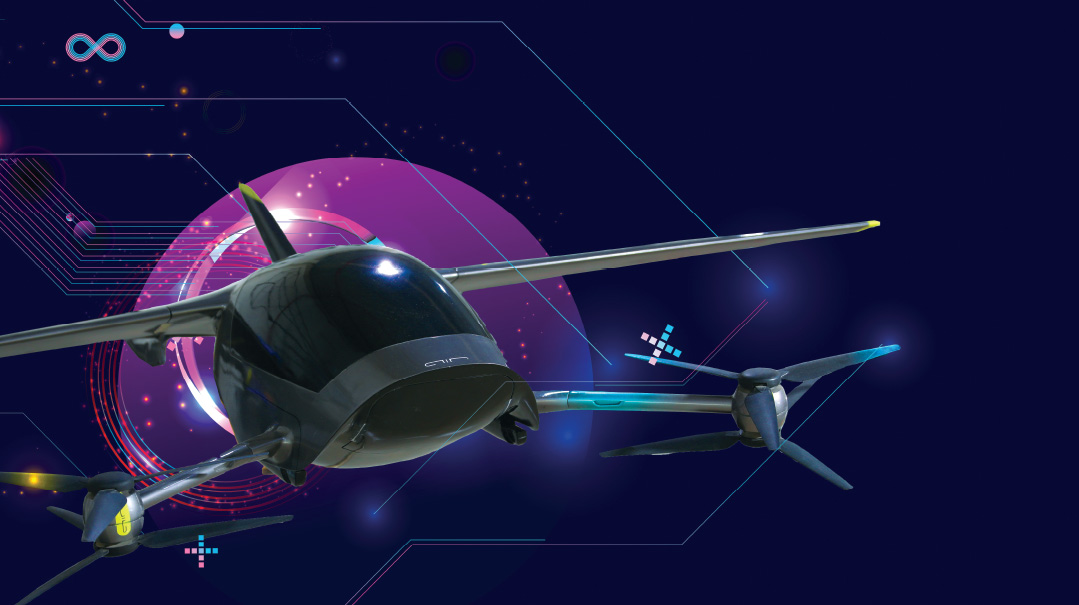The Sky’s the Limit

An upward-thinking Israeli startup aims to put a flying car in every garage

Photos: Menachem Kalish
The eight rotors of the small craft begin to spin, and within a few seconds, the vehicle rises vertically and begins to take flight — no runway necessary. As it lifts off the ground, this small flying craft seems to pick up confidence once it hits the air. When it reaches the desired altitude, it accelerates to 150 mph and shoots out toward the destination it’s been programmed to fly.
The prototype video I’m watching is the realization of childhood (and even adult) dreams: imagine, a flying car. But videos can play tricks. Because as much as we’ve already seen breakneck-speed advances in areas such as medicine and computer science, there is something inexorably linked to the world of the future with the idea of flying cars. Yet here I am, in the production complex of the AIR start-up, and the flying contraption is there, right in the center of the floor. Is this really something I could just hop into and fly? AIR CEO Rani Plaut seems to understand my dream — because he has it too. And if he has his way, that dream is about to take off.
Israel is known internationally as the “Start-Up Nation,” and Rani Plaut likes to include his company under that label.
His nearly camouflaged warehouse in Pardes Hannah, a town not far from the Caesarea shore, looks more like a high-tech plant than a factory for cars or aircraft. As the unwritten manual of 21st-century companies indicates, everything here is organized, transparent and immaculate, and glass seems to be the favorite material for interior partitions. Despite the fact that at the far end, technicians are working on some prototypes, this place definitely doesn’t have the look of a vehicle assembly line or a garage. There are no oil-stained rags, no smell of fuel. And in fact, this isn’t really a production line at all, because the company hasn’t yet begun to build the AIR ONE series for consumers.
Yet that didn’t stop the company from unveiling AIR ONE, the first easy-to-operate all-electric vertical takeoff and landing (eVTOL) craft, which they hope to sell to consumers on the open market — primarily in the US — by the end of next year.
AIR has been working with the US Federal Aviation Authority (FAA) for two years and expects to obtain certification by the end of 2023 for their craft, a two-seater, 970 kg (two-ton) eVTOL, which will have a flight range of 110 miles (177 km) on the battery charge, and will be able to accelerate to 150 mph.
But Plaut has a different vision. He says the difference with AIR is that it will be sold to consumers who can use its “fly by intent” software to fly themselves without being fully trained pilots.
“We’re not talking about commercial flights,” he tells Mishpacha. “We’re talking about people using it the way they use cars.”
If you’ve ever dreamed about soaring over traffic, it might be possible sooner than you think.
Oops! We could not locate your form.







